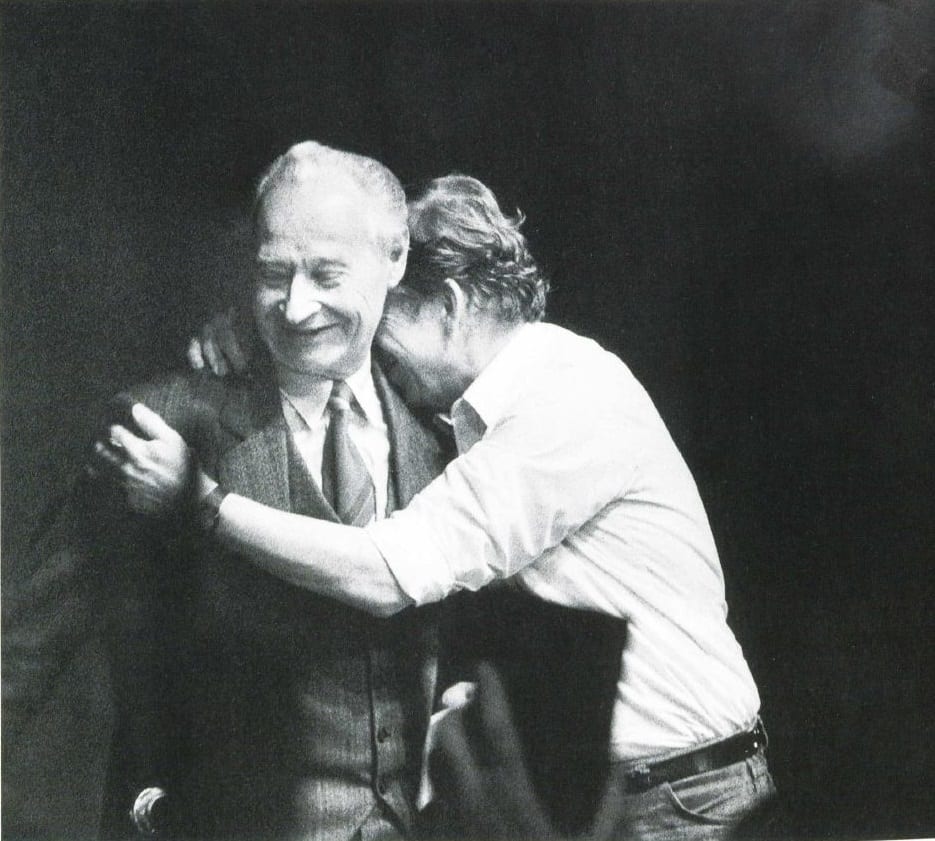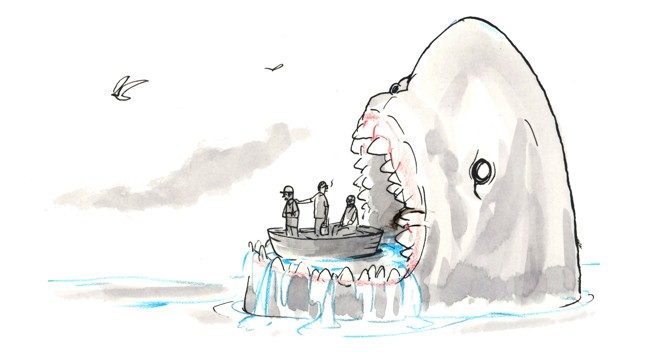Alan Ruttenberg, Englewood, N.J.
“Gentlemen! You can’t fight in here! This is the war room!,” from Dr. Strangelove. It’s both absurd and deadly serious. And the sardonic use of the word Gentlemen is priceless.
Our Leaders Kill For Their Own Benefit Ian Welsh
The Cold War spy technology which we all use BBC
Markets in everything: escape rooms
David Forden, CIA Handler in Cold War Intrigue, Dies at 88
The Cold War spy technology which we all use BBC
Markets in everything: escape rooms
David Forden, CIA Handler in Cold War Intrigue, Dies at 88
David Binder, 88, Dies; Chronicled the Cold War and Its Aftermath
The New York Times
“For East Germans the wall is an obsession,” he wrote after the Berlin Wall went up. “The desperate ones think only of escape: swimming across icy waters, running in the face of gunfire across open fields under the glare of searchlights, slithering between strands of barbed wire, leaping three and four stories, crawling through sewers. Some succeed; many fail, their bodies riddled with machine gun bullets.”
PRAGUE — To some Czechs, it was the greatest escape of the Cold War.
But in Central Europe, where history is often rewritten, there are many others who view the five young Czechs who trudged 28 days through unfriendly, snow-covered forest to reach West Berlin in 1953, as reckless murderers, the Iron Curtain equivalent of the Islamic terrorists of today.
In October of that year, the five Czechs forced their way across Czechoslovakia's border with East Germany, headed for the American sector of divided Berlin. What they thought would take five days took four weeks. They braved starvation, frostbite, bullet wounds and a hunt by 24,000 Soviet soldiers and East German police. . .
Along the way, the self-proclaimed anti-communist fighters - the brothers Josef and Ctirad Masin and their childhood friends Milan Paumer, Zbynek Janata and Vaclav Sveda - hijacked cars, stole submachine guns, drugged adversaries with chloroform, broke into police stations and killed six people, slitting the throat of a policeman with a Boy Scout knife.
I was fortunate to share lunch with Alexander Dubček in Sydney at NSW Parliament in 1990s
Jarka Sipka made many things to happen as she also manage to get Vaclav Havel to invade the Harbour city ... ;-)
PRAGUE — To some Czechs, it was the greatest escape of the Cold War.
But in Central Europe, where history is often rewritten, there are many others who view the five young Czechs who trudged 28 days through unfriendly, snow-covered forest to reach West Berlin in 1953, as reckless murderers, the Iron Curtain equivalent of the Islamic terrorists of today.
In October of that year, the five Czechs forced their way across Czechoslovakia's border with East Germany, headed for the American sector of divided Berlin. What they thought would take five days took four weeks. They braved starvation, frostbite, bullet wounds and a hunt by 24,000 Soviet soldiers and East German police. . .
Along the way, the self-proclaimed anti-communist fighters - the brothers Josef and Ctirad Masin and their childhood friends Milan Paumer, Zbynek Janata and Vaclav Sveda - hijacked cars, stole submachine guns, drugged adversaries with chloroform, broke into police stations and killed six people, slitting the throat of a policeman with a Boy Scout knife.
I was fortunate to share lunch with Alexander Dubček in Sydney at NSW Parliament in 1990s
Sarah Marks on how 'brainwashing' was used as a Cold War code-word for Communist mass indoctrination; and to express anxieties about consumerism after '89.

Alexander Dubček and Václav Havel after hearing Communist leaders had resigned; Prague, November 24, 1989.
August 2019 via SBS Language | Pavol Dubcek about his father, 1968 invasion
From the Archives, 1968: Soviet troops invade defiant Czechoslovakia
The most interesting thing about post Cold War post communism was who made money out of privatisation
Alexander Dubček: hope and despair in 1968
Alexander Dubček: hope and despair in 1968
′Unforgettable′ Prague Spring recalled, 50 years later ...
Bernie Taft and 1968: Tanks in Prague, Turmoil in Australian Universities ...
Photos: 50 Years Since a Soviet Invasion Ended the Prague Spring
The drudgery of the modern office is something almost everyone can
understand and so many entrepreneurs are trying to change. The cubicles, the endless meetings, the bureaucracy -- if you don’t laugh, you might cry.
Bernie Taft and 1968: Tanks in Prague, Turmoil in Australian Universities ...
Photos: 50 Years Since a Soviet Invasion Ended the Prague Spring
The drudgery of the modern office is something almost everyone can understand and so many entrepreneurs are trying to change. The cubicles, the endless meetings, the bureaucracy -- if you don’t laugh, you might cry.
big Brothers in 2019 ...
